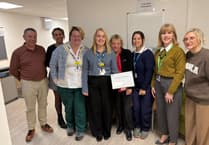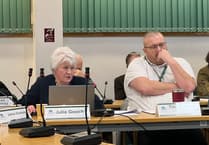A NEW strategy has been published that outlines priority actions to ensure that unpaid carers get the guidance, help or support they need to continue in their caring role while maintaining their own health and wellbeing.
Developed in partnership by professionals and carers, the All Age Carers Strategy is due to be approved by Herefordshire Council’s cabinet at their next meeting, this Thursday, July 18.
It is estimated that there are around 17,000 unpaid carers in Herefordshire, although this figure is likely to be higher as many people don’t consider themselves to be a carer.
Unpaid carers often put the needs of others before their own, and the role they play in providing support and care for family members can go unseen and unrecognised. This is especially so for young carers who can be juggling their school and home life, which can have a huge impact on their educational achievement.
Councillor Carole Gandy, cabinet member adults health and wellbeing, said: “Unpaid carers play a vital role in our communities, yet they often go unseen and unrecognised. Improving the advice, information and support available to them is a priority for us. It’s important that we work with them on initiatives that directly improve the quality of life of unpaid carers in our county, promoting wellbeing and independence in their caring roles.”
The overarching vision for the strategy was developed with carers: ‘Herefordshire is a carer friendly county, where carers of all ages are recognised, valued, heard and enabled to live a healthy, fulfilling family life.’
The carers strategy identifies a number of areas where the services and resources available for carers of all ages can be improved and made easier to access. This includes making sure unpaid carers feel recognised and valued.
The strategy recognises the particular challenges faced by young carers in their caring role, in education and other life experiences.
There are opportunities to introduce new technology to help support the cared-for person and provide additional reassurance for carers. Information for carers must be clear, high-quality and easily available from different sources.





Comments
This article has no comments yet. Be the first to leave a comment.